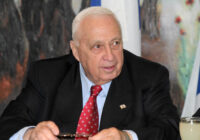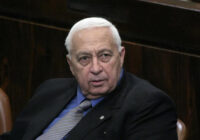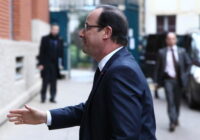Fair Observer's roundup of the week's events. [Note: Click here for the full report.]
Canada reported the first death in North America from H5N1 avian influenza. The victim had just returned from Beijing where the disease had apparently been contracted. The death is reported to be an isolated case, but it underscores that international travel enables diseases to travel too.
On January 6, Janet Yellen became the first woman to head the Federal Reserve, replacing Ben Bernanke, who had been at the helm since February 1, 2006. Stanley Fischer, the former governor of Israel’s central bank, is to be her deputy. Mohamed el-Erian of Pimco, the world’s largest bond manager, has labeled them a “dream team” and everyone is watching nervously what they will do with the taper, the gradual withdrawal of the excessively loose monetary policy that has defined the Bernanke-era. The great hope for the US economy is that growth takes off and incomes rise, enabling households and governments to pay off their debts.
Chris Christie, the popular portly Governor of New Jersey, who is the great hope of moderate Republicans, is at the center of a major scandal. David Wildstein, a Christie confidante and the governor's appointee to the Port Authority of New York and New Jersey, closed two of the three lanes that lead to the George Washington Bridge in Fort Lee, across the Hudson from Manhattan, creating massive traffic jams in Fort Lee. It turns out that Christie’s aides were carrying out a vendetta against the town’s Democratic mayor, who had refused to endorse Christie for re-election. While the media is delighting in writing Christie’s epitaph, this scandal might strengthen Christie because of the composure he is showing under pressure. What is more worrying for Christie is the investigation by federal officials that he might have improperly used some of the Hurricane Sandy relief funds to produce tourism advertisements that starred him and his family.
Argentina continues to hurtle towards disaster. After police strikes, a record heat wave, blackouts, and freak piranha attacks come the specter of more strikes by public employees who might emulate the police to gain wage rises of 30%. With inflation running at 25%, Argentina is in a spiral where increasing fiscal profligacy fuels inflation which, in turn, fuels wage pressures. An ineffectual government led by an ailing president does it no favors. Its government has frozen prices of common goods such as milk, sunflower and beef, and banned the sale of foreign currency since 2011. By the end of 2013, Argentina’s foreign reserves have fallen from a high of $50 billion to a mere $30 billion and, if the 2014 harvest falters, the country's economic troubles, social unrest and political tensions will amplify.
In the Brazilian city of Campinas the murder of an off-duty policeman led to a spate of killings. Reports put the death toll at 13 while police confirm to killings. Following the violence last week, this further brings into focus the dysfunctional criminal justice system in the country. An earlier study by the Latin America Studies Center blamed “impunity and other institutional deficiencies” for a culture of violence where people kill each other for trivial reasons. The lack of regard for life is further demonstrated by the fact that Brazilian security forces killed one out of 23 people they arrested in 2008 as compared to the US rate of one death per 37,000 arrests that year.
French President François Hollande is in the news not for his irrational economic policy or for his macho foreign policy, but for his affair with Julie Gayet – an actress who participated in his election campaign.
France, in the words of Danish diplomat, is still a pre-modern country where its leaders are treated like aristocrats of yore and not held to the same level of scrutiny or accountability as in northern Europe. For instance, Trierweiler has an office in Elysee Palace with six staff, which is popularly known as “Madame's domain.” It is supported by public money. If the love life of the president is purely a personal matter, then why should the French taxpayers pay for his partner or mistresses? Surely, the days of Madame de Pompadour are over. More importantly, the question whether the Hollande is focused enough on the job in the light of his turbulent private life is an important one to consider.
Ariel Sharon, the former Israeli general and prime minister, died after eight years in coma. As a fighting man, Sharon was one of the best of the 20th century. He was also “brutal, greedy, uncompromising and dishonest,” as Miko Peled, the Israeli author of The General’s Son, pithily says. Sharon’s record of brutality is extensive but three of his actions deserve close attention.
First, he invaded Lebanon in 1982, which ended in a catastrophe both for Lebanon and Israel. More importantly, Israel’s Kahan Commission found that Sharon bore “personal responsibility” for the Sabra and Shatila massacres, in which several hundred people were massacred, including infants, children, pregnant women, and the elderly. Second, as Robert Fisk points out, Sharon consistently opposed peace whether it was the 1979 peace treaty with Egypt or the Oslo agreement in 1993. Finally, under Sharon’s leadership “the number of Israeli settlers in the West Bank, including East Jerusalem, and the Golan Heights, increased from roughly 388,000 to 461,000.” He proceeded to reduce Gaza into an open air prison.
In summary, Sharon was a modern day Genghis Khan combining military genius with unremitting ruthlessness. To his supporters and allies he is a brave hero. To others, he is yet another butcher who escaped justice.
The civil war in Syria continues while conflict rages on in Iraq. Syrian rebels have reportedly killed 34 foreign fighters from groups linked to al-Qaeda. This seems to be part of a broader pushback against the Islamic State of Iraq and the Levant (ISIL). The bloodiest rebel-on-rebel violence has led to ISIL losing its main Syrian base of Aleppo. Even though ISIL is the restructured al-Qaeda branch of Iraq, the central al-Qaeda leadership has opposed its expansion in Syria and thrown its weight behind the al-Nusra Front instead.
Meanwhile, the US and UK have declared that they might stop supporting rebel groups that fail to participate in the forthcoming Geneva peace talks. There are indications that Iran might be open to a compromise on Syria and pull the rug under the Assad regime, but the US has shown a lack of maturity in excluding Tehran from the Geneva talks.
In neighboring Iraq, there is further proof of this proposition. ISIL has taken over Fallujah and parts of Ramadi in the western province of Anbar. Iraqi Prime Minister Nouri al-Maliki is urging the Sunni fighters to give up while vowing a “sacred war” against ISIL. As argued in the previous report, there is possibility of peace in the region without negotiating with Iran.
Peace talks continue incongruously on a dance floor of a nightclub in Addis Ababa between the South Sudanese government and rebels. The main sticking point is the release of prisoners loyal to rebel Riek Machar by President Salva Kiir. In the meantime, government troops seem to be gaining ground. They have captured Bentiu with Ugandan help and are approaching Bor, the last state capital in rebel hands. The rebels have meanwhile announced that they will march to the capital city, Juba. The fighting has killed more than 1,000 people and displaced about 400,000 so far. With external powers such as the US and China putting pressure on both parties, a deal remains well within the realm of possibility and some sort of ceasefire will eventually be negotiated.
As Central African Republic (CAR) returns to peace, Mali is slipping back into violence. Tuareg rebels have declared a five-month old peace deal with the government to be dead. Tuareg separatists continue to demand an independent homeland they call Azawad. The ceasefire was broken after government troops fired on protesters blocking a prime ministerial visit to a rebel-controlled northeastern town. Regardless of any efforts by the French, violence will keep returning to Mali because its boundaries are arbitrary and Tuareg rebels are increasingly inclined towards independence.
The US State Department declared Qari Saifullah, an Afghan Taliban leader based in the Pakistani city of Quetta, to be a “specially designated global terrorist.” Meanwhile, the Taliban has claimed responsibility for a bicycle bomb, attacking a bus carrying police recruits. Its most spectacular attack has come in Karachi. Chaudhry Aslam, the city’s head of anti-terror operations was killed in a bomb blast. Aslam was accused of orchestrating “fake encounters,” a practice popular in both Pakistan and India that involves capturing and killing militants in staged gunfights instead of taking them through the courts. It is clear that violence in Afghanistan is spilling ever increasingly into Pakistan.
The violence is spilling into India too. A senior police officer was killed last week in Kashmir and Indian troops have now killed three fighters near Srinagar. After the US invasion of Afghanistan in 2001, violence dropped in Kashmir. This trend has come to an end and India fears more Afghan fighters infiltrating Kashmir once US troops depart from Afghanistan. Despite its shared strategic interests with the US, India’s political and bureaucratic leadership seem delighted to cut off the nose to spite the face. After the US indicted India’s disgraced diplomat for visa fraud but gave her diplomatic immunity allowing her to leave, India retaliated by expelling the American diplomat who apparently evacuated the family of the Indian diplomat’s maid.
In Thailand, the opposition continues its tactic of taking to the streets to unseat Prime Minister Yingluck Shinawatra. They oppose elections and want power to be handed to an appointed government instead. This continuing turmoil is led by Suthep Thaugsuban, a member of the country’s dominant elite who is charged with murder for his role in the deadly crackdown on the 2010 political protests. The current protests will divide Thailand further and cause major economic damage. Its currency is already under pressure, tourism is suffering and both exports we well as investments are falling because of the continuing uncertainty.
In Cambodia, unions have been hit by court cases after their strikes were put down by brute force. More than 150 factories have filed cases against the six unions involved in the strike. Meanwhile, Buddhist monks have joined the battle to raise minimum wage. Cambodia’s growing inequality and corruption is provoking responses across different sections of society. For instance, rural areas that had once been a stronghold of the regime have now turned against it because of rampant land grabs by the ruling party. Although the regime may have seen off this wave of protests, its base is weakening and we are seeing the beginning of the end of Prime Minister Hun Sen’s 29-year reign.
China overtook the US as the world’s largest trading nation. The sum of its imports and exports for 2013 was $3.87 trillion, while the US figure for the same period was $3.82 trillion. While many have cast doubt on Chinese figures, it is clear that China’s trade is growing dramatically. It is already the largest trading partner of countries such as Brazil, Australia and South Africa. China’s increasing influence threatens to disrupt regional trading blocs like the EU. For instance, Germany will export twice as much to China by the end of the decade as it does to neighboring France. The post-World War II era when the US emerged as the top trading nation is over.
The views expressed in this article are the author's own and do not necessarily reflect Fair Observer’s editorial policy.
Image: Copyright © Shutterstock. All Rights Reserved
Support Fair Observer
We rely on your support for our independence, diversity and quality.
For more than 10 years, Fair Observer has been free, fair and independent. No billionaire owns us, no advertisers control us. We are a reader-supported nonprofit. Unlike many other publications, we keep our content free for readers regardless of where they live or whether they can afford to pay. We have no paywalls and no ads.
In the post-truth era of fake news, echo chambers and filter bubbles, we publish a plurality of perspectives from around the world. Anyone can publish with us, but everyone goes through a rigorous editorial process. So, you get fact-checked, well-reasoned content instead of noise.
We publish 2,500+ voices from 90+ countries. We also conduct education and training programs
on subjects ranging from digital media and journalism to writing and critical thinking. This
doesn’t come cheap. Servers, editors, trainers and web developers cost
money.
Please consider supporting us on a regular basis as a recurring donor or a
sustaining member.
Will you support FO’s journalism?
We rely on your support for our independence, diversity and quality.







Comment